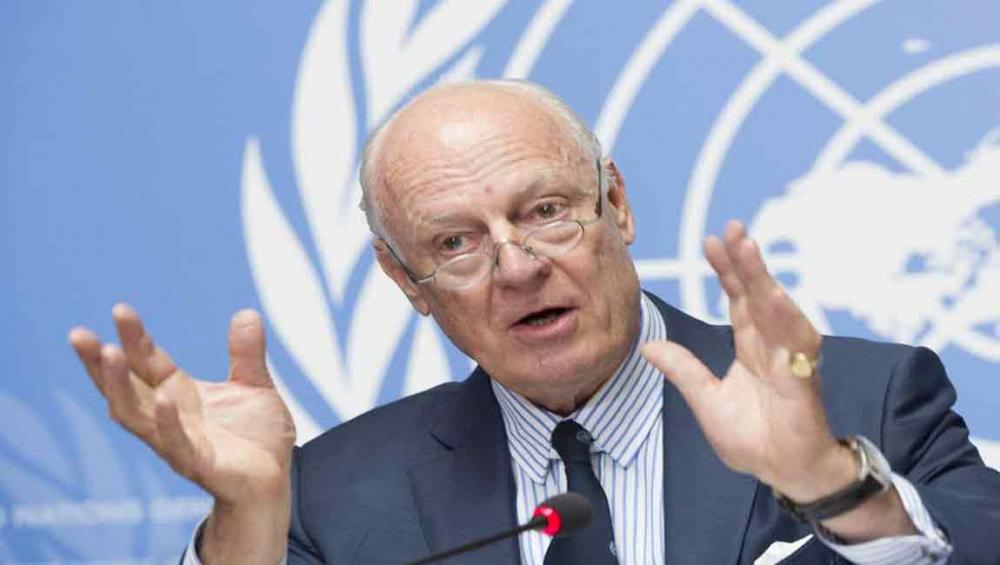Just Earth News | @@justearthnews | 11 Jul 2017

UN Photo/Violaine Martin
The UN negotiator was speaking to journalists in Geneva after Russia, the United States and Jordan gave their support to a so-called de-escalation area in the south-west of the war-ravaged country.
This development along with arrangements to support a ceasefire and delivery of humanitarian access – which was welcomed welcomed by UN Secretary-General António Guterres – comes amid ongoing fighting elsewhere in Syria.
At the start of the seventh round of intra-Syrian talks, de Mistura said that “several stars” were aligning in favour of potential progress towards an end to the crisis. In particular, he welcomed the new de-escalation zone in the south-west of the war-torn country, near the Jordan, Lebanon and Israeli borders.
It covers an area that had become a potential “flashpoint,” de Mistura said.
The deal was announced at the weekend following a meeting of the G20 leaders in the German city of Hamburg by the US, Russia and Jordan.
“De-escalation is what people the Syrian people have been asking, begging everyone, for a long time, hence our own support for the Astana process which is mutually reinforcing the Geneva one, and what has been the three areas which are being identified as de-escalation areas and of course our support to the south-west agreement announced in Hamburg,” he said.
On the first day of the UN-facilitated talks in Geneva, de Mistura met the Government of Syria delegation and held a working lunch with all three opposition delegation leaders.
The meetings coincided with a statement by the UN spokesman which said Secretary-General Antonio Guterres welcomed the establishment of the de-escalation zone, calling it a “significant step towards reducing violence and increasing humanitarian access across Syria.”
The UN chief added that it was in line with the pursuit of the goal of a comprehensive, nationwide ceasefire that had been endorsed by multiple Security Council resolutions.